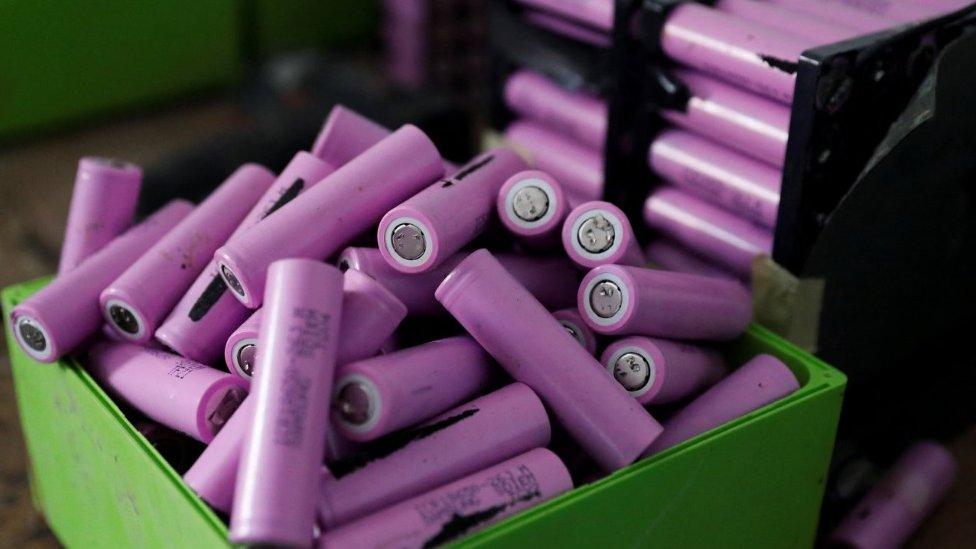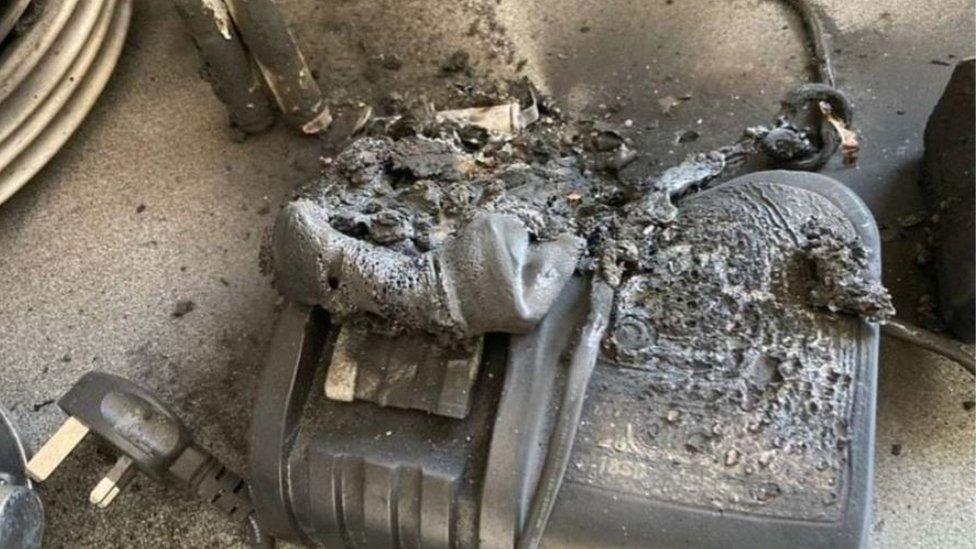Bournemouth University bans indoor charging over battery fears
- Published

The university has produced guidance on safely handling lithium-ion (Li-ion) and lithium polymer (LiPo) cells
The storing and charging of electric scooters, bikes and skateboards indoors has been banned by Bournemouth University.
It follows "several safety incidents" on campus relating to lithium battery devices being left on extended charge.
The university also said there were concerns over the use of incompatible chargers and the use of imported, less safe batteries.
It said staff and students should be aware of the "risks and hazards"
The university has produced guidance on safely handling lithium-ion (Li-ion) and lithium polymer (LiPo) cells and battery packs, including their safe disposal.
It highlighted e-scooters, electric skateboards and hoverboards, which use lithium batteries that are higher voltage and are less likely to be within current regulations.
"In recent years, there have been a growing number of product recalls involving lithium batteries, citing overheating, fires and explosions relating to the use of this type of battery," it said.
"Given these risks, it is important lithium batteries are managed in a safe way and our BU community are aware of the risks and hazards of using these types of batteries."
On its website, Dorset and Wiltshire Fire and Rescue Service advised that "on occasion, there is a risk that batteries can fail catastrophically, 'explode' and/or lead to a rapidly developing fire".
"Avoid storing or charging e-bikes and e-scooters on escape routes or in communal areas of a multi-occupied building. If there's a fire, it can affect people's ability to escape," it added.

Follow BBC South on Facebook, external, Twitter, external, or Instagram, external. Send your story ideas to south.newsonline@bbc.co.uk, external.
Related topics
- Published26 December 2023
